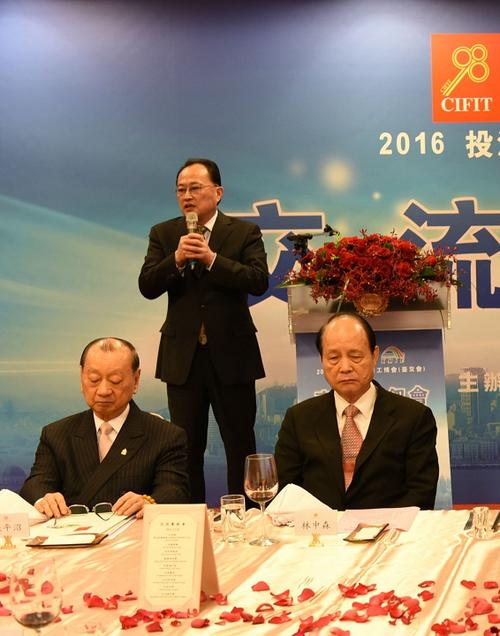Title: Exploring the CrossStrait Common Market Foundation
The CrossStrait Common Market Foundation is a significant initiative aiming to foster economic cooperation, integration, and mutual development between mainland China and Taiwan. This foundation plays a crucial role in enhancing crossstrait relations and promoting stability in the region. Let's delve deeper into its objectives, mechanisms, challenges, and potential future developments.
The primary objective of the CrossStrait Common Market Foundation is to establish a platform for economic collaboration, trade liberalization, and investment facilitation between mainland China and Taiwan. It aims to:
- Promote crossstrait economic integration.
- Facilitate the flow of goods, services, capital, and talent.
- Enhance competitiveness and innovation.
- Boost sustainable development.
- Strengthen mutual trust and understanding.
The foundation operates through various mechanisms and frameworks, including:
- Trade agreements: Negotiating and implementing agreements to reduce trade barriers, tariffs, and other obstacles to crossstrait commerce.
- Investment promotion: Encouraging and facilitating investments from both sides to foster economic growth and development.
- Regulatory cooperation: Harmonizing regulations and standards to streamline crossstrait trade and investment processes.
- Financial cooperation: Enhancing financial connectivity, including currency exchange, banking services, and capital market integration.
- Industrial collaboration: Promoting collaboration in key industries such as technology, manufacturing, and services to leverage each other's strengths.
Despite its potential benefits, the CrossStrait Common Market Foundation faces several challenges:
- Political tensions: Crossstrait relations are complex and sensitive, often influenced by political factors that may hinder cooperation and implementation of agreements.
- Legal and regulatory barriers: Divergent legal systems and regulations between mainland China and Taiwan can pose challenges to harmonization and mutual recognition.
- Security concerns: National security considerations may restrict certain types of cooperation, particularly in strategic industries.
- Public perception: Public opinion and sentiment on both sides may affect the willingness to engage in deeper economic integration.
- External influences: Global geopolitical dynamics and the involvement of other countries may impact crossstrait relations and the functioning of the foundation.

Despite these challenges, the CrossStrait Common Market Foundation holds immense potential for further development and expansion:
- Gradual integration: Incremental steps towards deeper economic integration can help build trust and overcome obstacles over time.
- Enhanced communication: Improving dialogue and communication channels between mainland China and Taiwan can foster understanding and cooperation.
- Flexible frameworks: Developing flexible frameworks and mechanisms that accommodate the unique characteristics and concerns of both sides can facilitate progress.
- Regional cooperation: Exploring opportunities for broader regional cooperation and integration can amplify the benefits of crossstrait collaboration.
- Peopletopeople exchanges: Promoting cultural, educational, and interpersonal exchanges can strengthen social ties and promote mutual understanding.
The CrossStrait Common Market Foundation represents a bold endeavor to promote economic cooperation and integration between mainland China and Taiwan. While facing various challenges, its potential benefits are substantial, offering opportunities for mutual prosperity, stability, and peace in the region. With strategic planning, dialogue, and perseverance, the foundation can pave the way for a brighter future of crossstrait relations.
